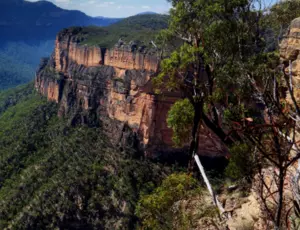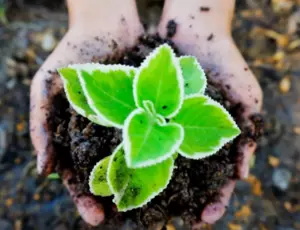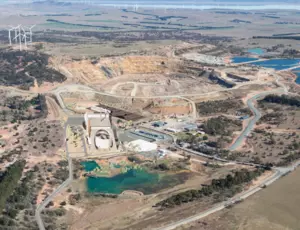Here is a snapshot of some of the policy and regulatory updates relevant to the environment in the April to June quarter, across Australia.
Only got 60 secs? Here’s a quick recap
- The Albanese government’s signature climate bill targeting big polluters, through reforms to the Safeguard Mechanism, has passed after a deal with the Greens including an absolute cap on emissions
- A new Net Zero Authority will support Australian workers, regional communities, investors and companies to engage with net zero transformation opportunities
- The Albanese Government released a budget that walked the tightrope between cost-of-living pressures and high inflation, and included strong commitments to emissions reductions
- Australia joined the G7 Summit in Hiroshima, Japan where the PM joined forces with the US President to form a Climate, Critical Minerals and Clean Energy Transformation Compact
- During a landmark meeting, Australia’s state and territory environment ministers agreed to implement strict new government rules to reduce packaging waste and promote recycling
- Many Australian state and territory governments issued notifications of landfill levy increases
Safeguard Mechanism bill passes
The Safeguard Mechanism is a key piece of federal climate legislation designed to drive emissions reduction of more than 200 of Australia's largest heavy industrial emitters, including Veolia's Woodlawn facility and possibly others in the future. A bill to reform the mechanism passed in March with changes including a cap on total emissions and to the use of an internal emissions credit trading scheme within these facilities.
Veolia’s position
Veolia supports Australia's transition to net zero emissions and the decarbonisation solutions we offer are playing a key role. This legislation delivers a degree of certainty for industry in how Australia will deliver its emissions goals, although key details concerning impacts on the landfill sector still need to be understood. As such, we continue to consult with the Government. Veolia also believes that to reach Australia’s stated emissions reduction target requires thinking bigger than emissions reductions at landfill sites and moving towards a genuine circular strategy.
Foundations for a clean economy and budget surplus
In May, the Albanese Government released the budget with a $14.6 billion cost of living relief package designed to support households and small businesses without adding to inflationary pressures. The budget also revealed the nation’s first surplus in 15 years with the $4.2 billion figure attributed to high commodity prices, a strong job market, and increased net migration – however, the surplus is expected to be temporary. The budget also laid the foundations for a clean economy, with commitments to cheaper, cleaner energy and energy security.
Veolia’s position
Veolia congratulates the government for budget commitments that demonstrate their ambition to turn Australia into a renewable energy superpower. In particular, the support given to workers and regional communities on the transition frontline, and $450 million towards the country's largest industrial emitters making investments that reduce emissions, as part of the revamped Safeguard Mechanism. Veolia actively collaborates with the Government to bolster its decarbonisation efforts, leveraging our industrial expertise to provide valuable advice and offer proactive support towards achieving sustainable and low-carbon solutions.
Mandatory packaging design standards and targets
During a landmark meeting on June 9, Australia’s state and territory environment ministers agreed to implement strict new government rules to reduce packaging waste and promote recycling. The rules will include mandatory standards and targets for packaging design, such as using recycled content, and addressing harmful chemicals in food packaging. The ministers also called for the textile and clothing sector to take responsibility for their waste by the middle of 2024 else face future regulation and discussed a national roadmap to improve harmonisation of kerbside collection.
Veolia’s position
Veolia commends Australia’s state and territory environment ministers for agreeing to strong actions that will ensure packaging producers take responsibility for their waste. Through collaboration with industry bodies and direct engagement, Veolia is already working with the government to develop legislation that promotes practical and implementable solutions that can reduce packaging waste and transition Australia to a circular economy.
Landfill levy increases
The end of June can bring with it notifications of landfill levy changes and this year many states and territories announced a hike. The NSW Government announced that from 1 July 2023, the solid waste levy rates would jump to $163.20 per tonne for waste generated in the Metropolitan Levy Area and $94.00 per tonne for waste generated in the Regional Levy Area. Western Australia’s waste levy rate will be $85 per tonne from 1 July 2024, the first increase to the levy since 2018. WA’s Environment Minister Reece Whitby said of the increase, "We need to reduce, reuse and recycle and the waste levy helps to discourage sending recoverable materials to landfill.”
Veolia's position
Veolia supports using this powerful policy lever to reduce the amounts of waste going to landfill. Around the world landfill or waste levies have been proven to encourage the diversion of waste from landfill. However, increases that are not coordinated between states and territories can create cross-border disparity and opportunistic operators will move material around the country in search of the lowest fee. A national standard is needed to ensure levies achieve their intended outcome of incentivising more sustainable waste management processes.
Net Zero Authority
The Australian Government is establishing a new Authority to ensure the workers, industries and communities that have powered Australia for generations can seize the opportunities of Australia’s net zero transformation. The new Net Zero Authority will support workers in emissions-intensive sectors to access new employment, skills and support and help investors, companies and regional communities engaging with net zero transformation opportunities.
Veolia’s position
The National Net Zero Authority will play an important leadership role as Australian cities and regions move to a clean economy. There are major opportunities for Australia in the global move towards a circular economy and net-zero emissions, including demand for mining and processing of critical minerals. And many of the skills used in the coal, oil and gas sectors are also transferable to those needed for clean energy production and in the resource recovery sector. In fact, Veolia is already bringing skilled miners into the energy recovery sector, and upskilling them for the operation of greener technologies. Modelling by Veolia has found this approach will be needed, with an additional 25,000 domestic jobs expected to be needed to build a circular economy.
Australia strengthens US climate alliance at the G7
In May, Australia joined the G7 Summit in Hiroshima, Japan where the PM joined forces with the US President to form a Climate, Critical Minerals and Clean Energy Transformation Compact. The Compact aims to promote ambitious action on climate change and clean energy, both domestically and internationally. It seeks to coordinate policies and investments to support responsible clean energy and critical minerals supply chains, develop markets for established and emerging technologies, meet energy needs in the Indo-Pacific region, and enhance regional security
Veolia’s position
Veolia commends the Australian government for displaying the country’s potential as a green energy superpower on the world stage. Veolia has embarked on a nationwide decarbonisation project of its Australian operation to reach ecological transformation. Under the transformative $20-million project, rooftop solar panels and commercial battery stations will be installed across Veolia's eligible Australian facilities, building the company’s capacity for behind-the-meter energy independence. In addition Veolia is exploring wide scale renewable hubs.





